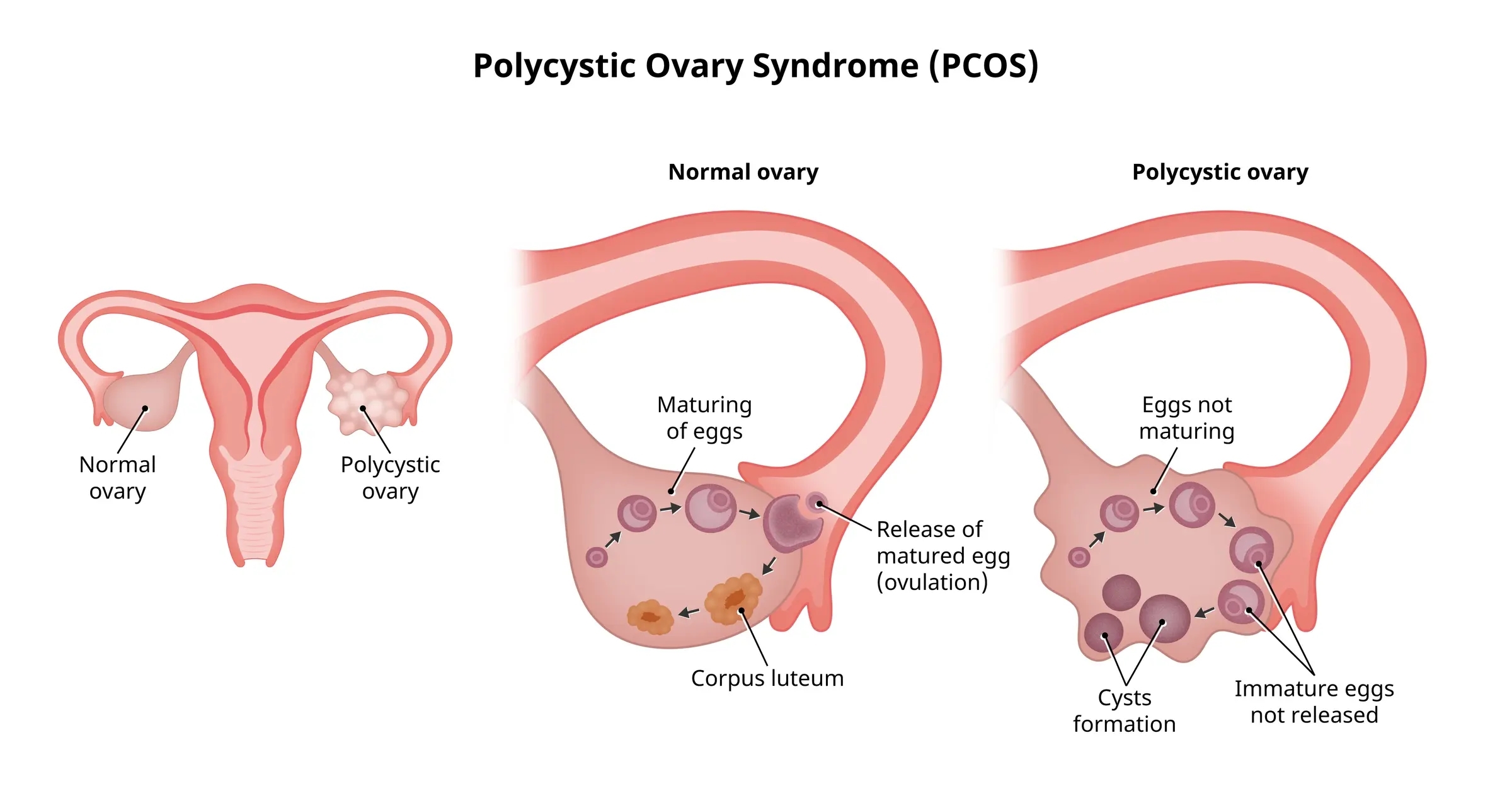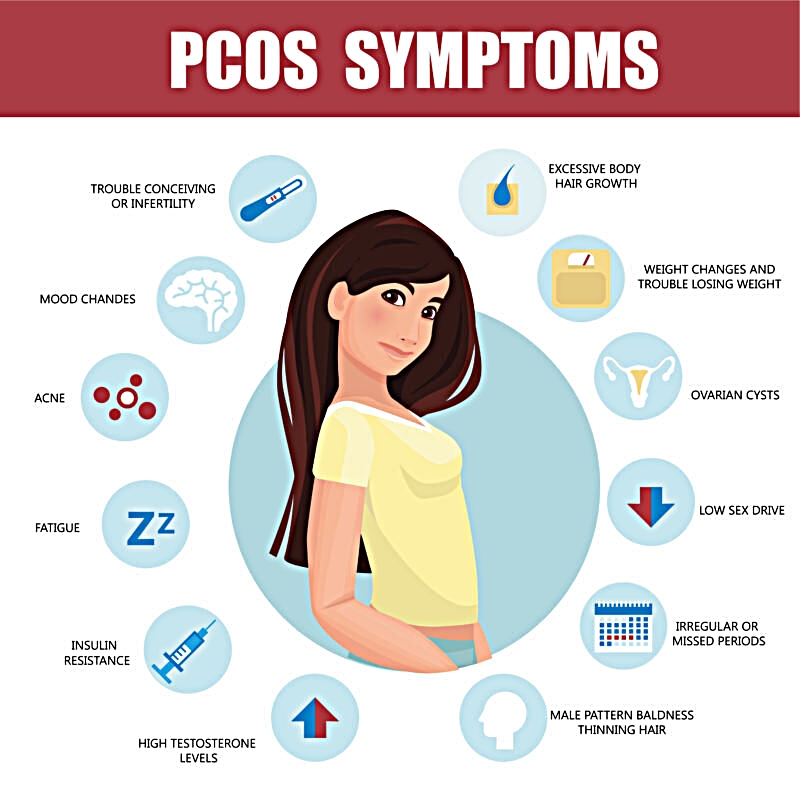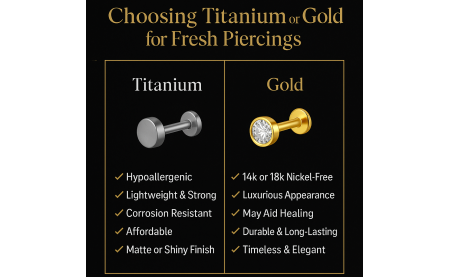PCOS & Piercings

Polycystic Ovary Syndrome
Hormones play an important part in our bodies; they are chemical messengers that direct our bodies to perform a variety of functions. They have a significant impact on our skin, immunological responses, and other elements that can influence how a body piercing heals. So it's no surprise that PCOS, a hormonal disease that affects the ovaries during reproductive years, can have a significant impact on how piercings heal. There is little awareness about how these hormonal problems can have such far-reaching consequences, so many customers struggle to repair piercings and wonder what they are doing wrong. Similarly, many piercers are unfamiliar with this issue and may be unprepared to advise clients through the healing process. Please do not be hesitant to explain your situation to your piercer; if they are uninformed of your condition, they will be unable to appropriately advise you.
Let's Discuss What is PCOS.
Polycystic ovarian syndrome (PCOS) is a common hormonal disorder affecting women of reproductive age. It usually begins in young people, but symptoms might vary with time.
PCOS can cause hormonal abnormalities, irregular menstrual cycles, elevated androgen levels, and ovarian cysts. Irregular periods, usually due to a lack of ovulation, might make it difficult to conceive. PCOS is the major cause of infertility.
PCOS is a chronic disorder that cannot be healed. However, certain symptoms can be alleviated with lifestyle modifications, drugs, and fertility treatments.
PCOS has no known cause, however women with a family history of the condition or type 2 diabetes are more likely to develop it.

Symptoms of PCOS
Symptoms of polycystic ovary syndrome can differ from person to person. Symptoms may change over time and often occur without a clear trigger.
Possible symptoms include:
heavy, long, intermittent, unpredictable or absent periods
- infertility
- acne or oily skin
- excessive hair on the face or body
- male-pattern baldness or hair thinning
- weight gain, especially around the belly

People with PCOS are more likely to have other health conditions including:
type 2 diabetes
hypertension (high blood pressure)
high cholesterol
heart disease
endometrial cancer (cancer of the inner lining of the uterus)
PCOS can also cause anxiety, depression and a negative body image. Some symptoms such as infertility, obesity and unwanted hair growth can lead to social stigma. This can affect other life areas such as family, relationships, work and involvement in the community.
The specific causes of PCOS remain unknown. Insulin resistance, inflammation, genetic components, and hormonal shifts are some of the contributing reasons. According to research, PCOS may be associated with specific genetic markers. White blood cells produce chemicals in reaction to infection or injury, resulting in low-grade inflammation. According to research, people with PCOS have chronic, low-grade inflammation, which can lead to polycystic ovaries generating androgens, which can cause heart and blood problems.
Piercing with PCOS
- Clients with PCOS can still receive piercings. However, our technique to piercing them differs significantly from that of our other clients.
- In clients with PCOS, the initial inflammatory response to being pierced may be stronger. I found that you we need to leave extra room for swelling, and piercing at a slightly larger size provides greater stability when dealing with chronic inflammation.

- We shall use a somewhat thicker gauze, such as 16g for earlobes and noses and 14g for conches and helixes. Because extra inflammation is an issue, I find that these somewhat larger sizes are much more consistent over time, resulting in less overselling and irritation.
- The initial phase of inflamation and edema can be prolonged in those with PCOS, necessitating a longer period of downsizing and the use of cold compresses to decrease or manage swelling.
- Because the inflammation response is so much stronger, customers may have more discomfort bumps and difficulties following a catch or snag. Starting with simple jewelry, such as plain beads, discs, and cabs, can help to reduce catching and snagging.
- With PCOS, it is strongly recommended that you contact your piercer for follow-ups on a regular and more frequent basis. Furthermore, because PCOS can impair immune responses, your client's immune system as a whole may struggle to heal piercings.
- We recommend a gentler approach and a slower pace when performing piercings with PCOS; if you wish to get numerous piercings, we recommend going slowly, getting no more than two at a time, and seeing how your body responds. Then the next time, get two more, but at a moderate pace; never rush.


